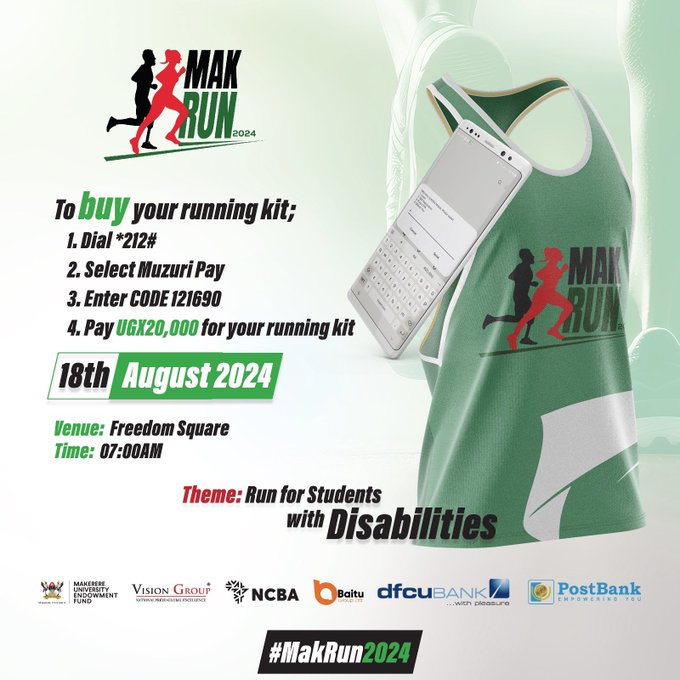Training On Disability Law For Judicial Officers
Theme: ‘Promoting disability rights through the Bench’
25th July 2019, at Venue: Imperial Royale Hotel.
1. Background
Uganda ratified the UN Convention on the Rights of Persons with Disabilities (CRPD) and its Optional Protocol on 25th September 2008 without reservations. Uganda has also recognized the rights of Persons with Disability in Articles 32 and 35 of the 1995 Constitution, as well as though the passing of the Persons with Disabilities Act 2006. All this has been done with a view of enhancing the promotion and protection of the rights of Persons with Disability.
The 1995 Constitution under Article 35(2) further mandates the government to enact appropriate laws for the protection of Persons with Disability. This provision is further strengthened by the CRPD: Article 4 (1) (b) puts obligations on state parties to abolish or modify laws that discriminate against Persons with Disability, Article 5(1) & (2) provides for equality and non discrimination before the law, Article 12(2) provides for equal recognition before the law and finally Article 13 provides for access to justice for all disabled persons. Although persons with disabilities constitute about 12.4 percent of Ugandans aged 20 years and above, many of the laws currently regulating the process of trail fall short of addressing the various accessibility concerns and reasonable accommodations accorded to PWDs by the UNCRPD.
Uganda also happens to be a signatory to Agenda 2030 and the sustainable development goal (SDGs). Goal 10 of the SDGs obligates state parties to reduce inequality within and among states whereas goal 16 provides for access to justice for all people, which includes Persons with Disability.
In spite these deliberate actions by the state, there are still glaring gaps in the full enjoyment of rights of Persons with Disability. Persons with Disabilities in Uganda continue to face all forms of discrimination, abuse, inhumane, cruel and degrading treatment, stigmatization, social exclusion, unemployment, low levels of education, high levels of poverty, poor or limited access to education and health services and seclusion from the society which all together culminate into a gross abuse of their fundamental human rights. They also continue to face challenges in accessing justice. This state of affairs is perpetuated by among others, the lack of inclusive government policies and programmes that ensure PWD inclusion in society.
2. Objectives
The overall objective of the training is to build the capacity of judicial officers with knowledge, attitudes and skills in area of disability rights and law to enable them infuse the same in their practice.
The specific objectives of the training include:
i) To provide a platform for interface among judicial officers, legal practitioners, human rights defenders and academia on matters pertaining to advancement of disability rights observance in Uganda;
ii) To enhance an understanding of Human Rights instruments and frameworks for disability rights;
iii) To enhance awareness about the disability rights, the challenges of Persons with Disability in accessing justice and identify possible solutions;
iv) To devise practical mechanisms for the protection and fulfillment of rights of Persons with Disability under the justice system.
v) To do a pre-enactment advocacy for the Draft Court Rules Governing Procedure for Handling Cases involving Persons with Disabilities
3. Methodology/Activities
The Training will be a ½day non-residential activity in Kampala. It will consist of presentations by facilitators on key legal aspects and practical sessions where participants input in the proposed draft rules guiding case involving persons with disability. There will also be interactive sessions between participants on best practices and litigation strategies.
4. Participants
The training will draw together a total of 60 judicial officers. A few participants will be drawn from academia, legal practice and Civil Society.
5. Partnering organisations
Three coalition partners namely: Network of Public Interest Lawyers (NETPIL), National Union of Disabled Persons of Uganda (NUDIPU) and East Africa Centre for Disability Law and Policy (CDLP) have been implementing a project entitled: Promoting Access to Justice for Persons With Disabilities in the Justice System on an Equal Basis with Others. Part of the project activities include developing a draft of High Court Guidelines Governing Procedure of Handling Cases Involving PWDs, and capacity building for the judiciary on disability rights and issue
The Network of Public Interest Lawyers (NETPIL) is an umbrella organization that brings together individuals, law firms and non-governmental organizations with a commitment to engage in public interest litigation to achieve social justice. The establishment of the Network was spearheaded by the Public Interest Law Clinic (PILAC) at Makerere University, School of Law.
East Africa Centre for Disability Law and Policy (CDLP) is a company limited by guarantee. It was formed in 2012 by disabled professionals desirous of furthering disability inclusion in its various forms. The vision of CDLP is: an inclusive and accessible society for all. Its mission is to enhance the understanding and realization of disability rights through strengthening Research, Policy and Advocacy.
National Union of Disabled Persons of Uganda (NUDIPU) is an umbrella Non Governmental Organization that advocates for the rights of all categories of disabilities including physical, sensory and mental. Formed in 1987, NUDIPU has membership in 112 districts and 10 national disabled people’s organizations with the vision of having a dignified society for all. The organizations exist with the mission of advocating for the rights of persons with disabilities in a unified voice for improved livelihoods.


